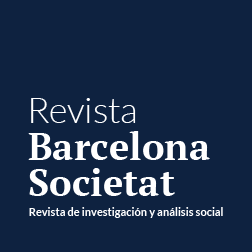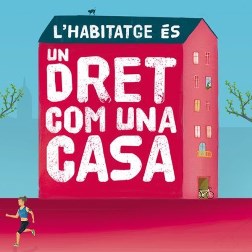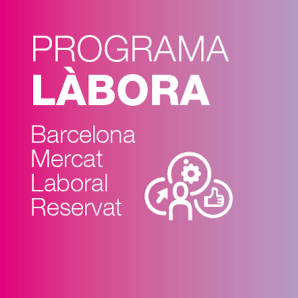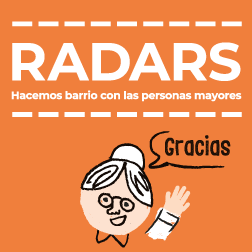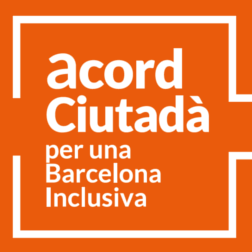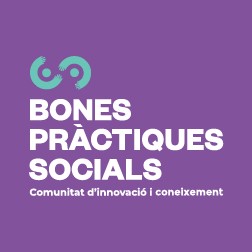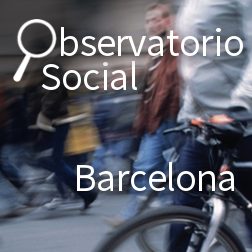"Women*: together and diverse", the LGBTI Centre's new cycle of activities
31/03/2021 - 18:43
What acts of violence to lesbians, bisexual and transsexual women and other identities still suffer due to gender of sexual orientation? This is the starting point of the cycle of online activities that will be developed by the LGBTI Centre between April and July.
Through round tables, book presentations, cinematographic projections, and other types of actions, the aim is to highlight the origins of these groups’ fights, their vindications and the discrimination they still suffer in many areas of life.
The main activity of the cycle is the exhibition entitled “Lesbophobia: towards and reversing patriarchal violence”. It is a project created by Lara M. Pascual, Azahara Fuentes and Irene C. Matamala for the entity Creación Positiva, aimed at unravelling the word ‘lesbophobia’ to illustrate the acts of violence derived from the economic, social and ideological system of heteropatriarchy.
Through artistic techniques like photography, video and collage, the exhibition invites us on a journey through different individual and collective experiences that create a narrative that responds to questions and situations such as the expressions of violence produced in intimate and family spaces, language, desire and resistances.
The exhibition, which can be visited between 12 April and 16 July, will be inaugurated on 15 April with a round table moderated by Montse Pineda Lorenzo, Coordinator of Political Incidence of the entity Creación Positiva. The three creators of the exhibition will be taking part, in addition to a representative of Creación Positiva, the Deputy Mayor of Social Rights, Global Justice and Feminisms, Laura Pérez Castaño, and the General Manager of Equality of the Government of Catalonia, Mireia Mata i Solsona.
Round tables: activism takes the stand
As usual, the LGBTI Centre will be inviting activists and experts to analyse the different points of interest. The first of the round tables will take place on 6 April to coincide with International Asexuality Day. With the collaboration of the Catalan Asexual Association, the LGBTI Centre would like to help raise awareness and the profile of the different realities of asexual people.
Additionally, on 17 May, International Day against LGBTI-phobia, the Centre is organising a meeting where various bisexual and ‘bolleres’ [derogatory term for lesbian] activists will share their experiences and vindications to find common ground and sisterhood based on situations of discrimination suffered by the two groups.
In other round tables, varies aspects will be debated, including the right to one’s body, the pathologization of life processes (25 May) and the mechanisms of feminine resistance that have been established in the audiovisual sector, where professional empowerment has been made possible, in many cases, by the creation of new feminist and anti-racist discourses (15 July).
‘Lesbo’ Music and poetry on Lesbian Awareness Day
Culture and vindication will come together on 26 April at 6pm to call for raised awareness of lesbianism. The LGBTI Centre has invited artists from different places to take the stage. Transfeminism, health, grief, relationships, identities, gender, pleasure, memory and defending life are some of the issues that will be tackled through poetry, rap, music and performances.
The verses of Elena G. Ruiz, Isa Sina – Isa Calsina, Dafne C., Jaracandá Disidente, Olza Olzeta, Joyce Jandette and La Grieta, and the music of the group Las amigas de Yoli, made up of Mònica Guitaras Blaya and Ana G. Aupi, will share the evening, with Martu Herreros as the mistress of ceremonies. The act will be streamed on YouTube.
The latest and history through literature and cinema
Over the next four months, the LGBTI Centre will also be trying to navigate through the history of women that have played a groundbreaking role within the LGBTI movement and analysing current issues via books and cinema.
In terms of literature, there will be the presentation of Señoras que se empotraron hace mucho (4 May), a work by Cristina Domènech about the figure of the women that have rebelled against the established norms of their times to express their sexuality. New ways of bringing up children and types of families will also be explored in Maternidades cuir, by Eva Abril and Gracia Trujillo (27 May). And Elisa Coll will give a talk entitled Bisexual Resistance. Maps for a habitable dissidence (8 June), a personal perspective of bisexuality and biphobia.
Last, the LGTBI Centre will go on a journey to Oaxaca, Mexico with Ramonera, by Elvis Guerra (22 June). The book addresses the subject of ‘muxe’, people who challenge gender binarism and embrace feminism even though they have been born with male genitalia.
The cinematographic agenda includes a selection of films chosen by Drac Màgic, which will be available for 48 hours on the Cinemes Girona digital platform. With ‘Zauria(k) / Herida(s)’ (24-25 April), the Centre will explore the intersection between mental health, psychological suffering and gender experiences through the reality of nine women. The construction of benchmark figures will also be promoted with films like ‘Ni d’Eve, ni d’Adam, une historie intersexe’ (8-9 May), ‘Naomi Campbel’ (5-6 June) and ‘Always Amber’ (3-4 July).
Recovering the LGTBI memory will be explored with ‘The archivettes’ (22-23 May), a documentary about how the Lesbian Herstory Archives were founded in Brooklyn in the 1940s, and with the projection of ‘The death and life of Marsha P. Johnson’ (19-20 June), the famous film investigating the death of the transgender-rights activist Marsha P. Johnson through the testimony of her friend Victoria Cruz.
In pursuit of the ongoing desire to incorporate the intercultural view, the cycle will draw to an end with the film ‘Troublers’ (24-25 July), a ‘road movie’ from the South Korean lesbian director and activist Lee Young that denounces the precariousness of the lives of LGTBIQ people in many parts of this Asian country.



